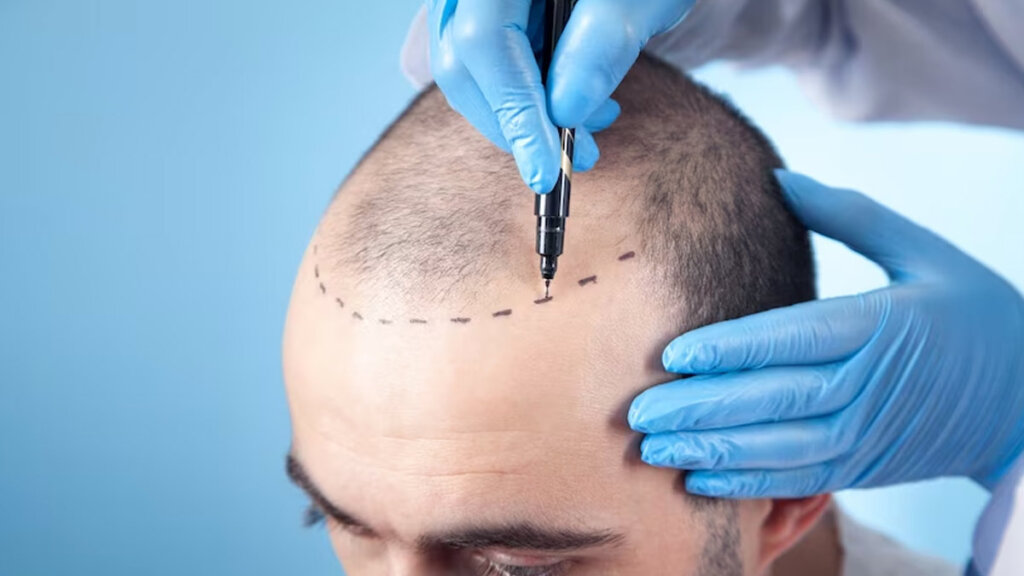
Hair transplantation methods have increased dramatically as technology has advanced. Almost every clinic gives information on a variety of approaches to those who seek it out. This information, which is confusing, makes decision-making extremely difficult. However, there are two fundamental ways for hair transplants that have been employed in the past and now.
What is FUE Hair Transplant Method?
FUE hair transplant method is a relatively common procedure nowadays, and many patients choose it. FUE grafts are created directly from the scalp, as opposed to the traditional FUT (or Follicular Unit Transplantation) procedure. The fact that the FUE treatment leaves no visible scars and produces natural-looking results is the most crucial consideration.
The initial step in FUE hair transplant method is to manually extract groups of 1-4 hair follicles, known as grafts. When the extraction phase is over, the doctor uses tiny blades to open the channels. The doctor takes the grafts from the solution and implants them in the recipient region when the channels have been opened.
Patients who have had FUE hair transplant method should expect to see results two months following the procedure. More significant growths, on the other hand, generally become more evident after six months, with complete results appearing 12-18 months following the treatment. The most evident benefits of FUE hair transplantation are the shorter recovery period and less pain due to the lack of sutures. As a consequence, FUE hair transplantation is the method of choice since it promises better outcomes, less pain/discomfort, no scarring, and a greater impact.
What is DHI Hair Transplant Method?
DHI hair transplant method is a newer treatment compared to FUE. However, it is comparable to FUE in that it does not leave a scar and produces a natural appearance. The hair follicles are removed one by one with a specialized instrument in the first stage. The hair follicles are put onto a device and the treatment is carried out by implanting them directly into the recipient region. The DHI procedure involves both the construction of channels and the placement of the implants at the same time.
In addition, the recovery period for DHI is comparable to that of FUE. The full outcomes generally take 12-18 months to manifest. A surgeon cuts a series of channels in your scalp by hand to insert hair follicles during FUE. The DHI technique aids doctors in making these incisions as well as transplanting hair.
Difference Between FUE and DHI Hair Transplant Methods
The most crucial distinction between DHI and FUE hair transplant methods is how the grafts are implanted in the recipient region. For example, with FUE hair transplantation, the channels must be opened before implantation. So that the surgeon may manually implant the extracted grafts. DHI, on the other hand, employs a specialized instrument known as the Choi Implanter Pen. This device allows implantation to take place immediately after extraction, without the need to first build channels for the grafts. Furthermore, FUE is a graft collecting procedure in which micro-motor instruments are utilized to open the perforations.
What are the results of FUE and DHI Hair Transplant Method?
The success of FUE hair transplantation is primarily reliant on the opening of the channels. In other words, if the channels are properly opened, your hair transplant process will have a considerably better success rate. You will have more natural-looking and thick hair as a consequence of FUE hair transplant surgery. If every stage of the FUE hair transplant method is completed correctly, the outcomes of your hair transplant therapy will be incredibly successful and natural-looking. When your FUE hair transplant surgery is finished, you’ll see the effects in around six months. You’ll have to wait another twelve months to see the final outcome.
For those searching for a natural-appearing hair transplant, DHI hair transplant method is a great option. You will not feel any hair loss after the implantation operation is done. Moreover, your hair will remain with you for the rest of your life. The benefit of the DHI hair transplant method control over the angle, depth, and positioning of the hair.
The full effects of these two surgeries usually start to show up twelve months following the therapy. In addition, the recuperation period for both surgeries is similar and shorter. It’s also vital to consider the age range of persons who would benefit from hair transplant surgery. Hair transplant surgery is available to anybody over the age of 18. However, specialists recommend that anyone over the age of 25 undergo the procedure. Hair transplantation may not be necessary for younger men since their hair loss patterns have not yet been thoroughly characterized.
Which Hair Transplant Method is Better for You?
When compared to FUE, the DHI treatment is newer, and it is typically advised for individuals under the age of 35. The reason for this is that hair loss in people under the age of 35 is not as advanced as it is in other age groups. Moreover, the success rates in these situations are significantly greater. The FUE treatment is a relatively safe operation with mild side effects such as little white scars where the follicles are extracted. Infection or tissue death may develop at the surgical site, even though it is uncommon in the FUE technique. The greatest number of grafts we can implant using DHI surgery, on the other hand, is 4000.
The DHI Hair Transplantation process also allows you to choose the direction and size of your hair growth based on your preferences. The FUE method is preferable because it covers a bigger area than the DHI method. The DHI method is a procedure that achieves more density at a faster pace. According to their claims, the success rate of both FUE and DHI has reached 95%. This demonstrates that both treatments are quite safe, regardless of which one you choose.
You can read our previous article about hair transplant method from https://smileteamturkey.com/blog/why-is-turkey-number-one-in-hair-transplantation/
You can read out previous article from https://smileteamturkey.com/blog/what-is-xerostomia/
